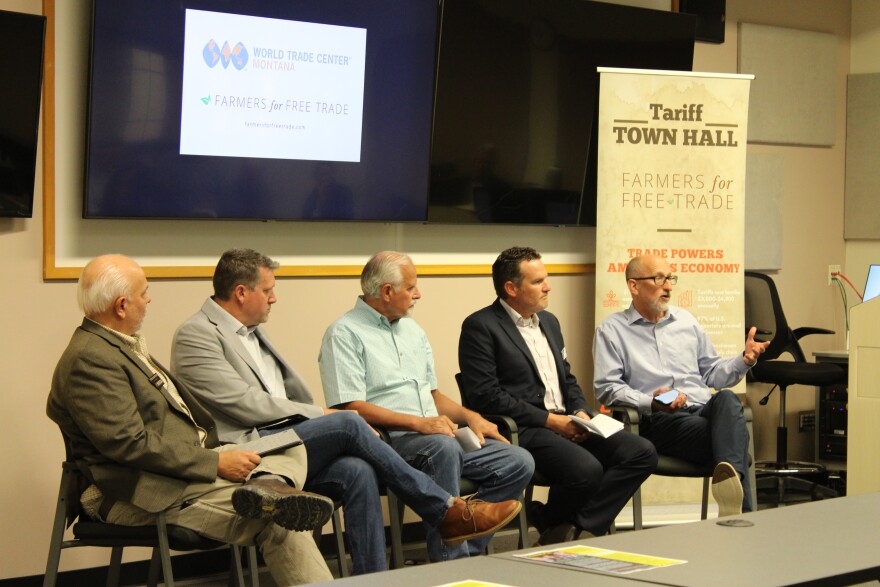In January, President Donald Trump began implementing a litany of tariffs on imports from foreign countries. Trump said U.S. trade agreements had become unfair to American companies. The move sparked a series of trade wars.
The nonprofit Farmers for Free Trade organized the panel on what the tariffs mean for Montana.
Typically, Congress decides when and how to implement tariffs, except in matters of national security. Recent tariffs have all stemmed from the President.
Tom Britz, owner of Glacier Hops Ranch in Whitefish, called that an "abdication of the throne, so to speak. Abdication of their duty. It's just, nobody is standing up."
Britz and other panelists called on lawmakers to take back that authority.
Many countries are taking retaliatory actions. Dan Finch is the Vice President for a global whey company. He said his largest importer, Canada, enacted retaliatory tariffs that are hurting his business and others.
"Well, what has that done for those customers of ours in Canada? They said, 'well, we’re not going to buy from you, we’re going to buy from Australia.'"
Farmers for Free Trade reports Montana’s importers paid $5 million in tariffs in May this year. That’s five times more than in 2024. Exports of Montana-grown commodities like wheat, barley and rapeseed declined by as much as 95 percent.
Panelists agreed that in agriculture, margins are too slim for these losses.
"Farmers in the U.S. are in trouble," Vice President of Montana Grain Growers Association, Steve Sheffels said.
He said even before the tariffs farmers needed more support. Sheffels called for new trade agreements and congressional action.
Montana Public Radio is a public service of the University of Montana. State government coverage is funded in part through a grant from the Corporation for Public Broadcasting.


